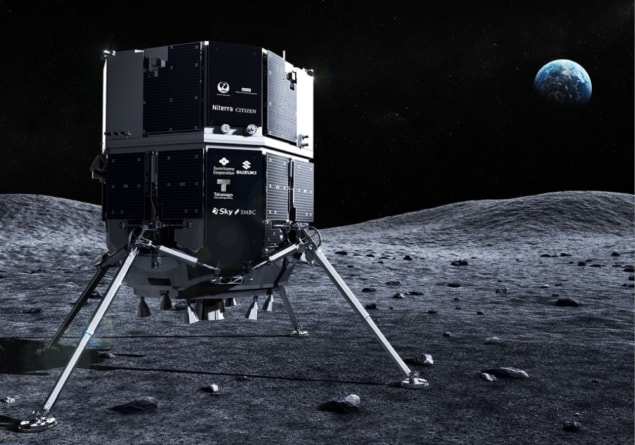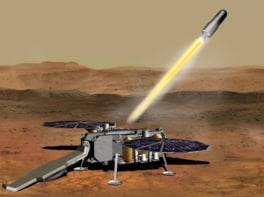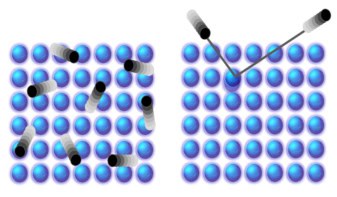
The Japanese firm ispace has announced that its Hakuto-R Mission 1 craft has failed in its attempt to land on the Moon. In a statement, the firm said ispace engineers would now carry out a detailed analysis of the telemetry data to find the cause of the crash. If the mission had succeeded, ispace would have become the first private firm to land a craft on the lunar surface.
Hakuto-R was launched aboard a SpaceX Falcon 9 rocket on 11 December 2022. The craft then spent four months travelling to the Moon with the aim of landing in the Atlas crater on the Moon’s nearside. As it approached the Moon, Hakuto-R took several images of the lunar surface before its scheduled touchdown at 16:40 UTC on 25 April.
According to ispace, the lander was in a vertical position as it carried out the final approach to the lunar surface. However, mission controllers lost all communication with the lander after the expected arrival time.
Estimates of the amount of remaining propellant showed it had been falling as Hakuto-R approached the surface. The craft’s descent speed then rapidly increased, which may have been caused by the engines shutting down, resulting in the craft crashing into the surface.
What is important is to feed this knowledge and learning back to Mission 2 and beyond
Takeshi Hakamada, ispace chief executive
Hakuto-R was carrying the United Arab Emirates’ (UAE) first lunar rover, called Rashid. Built by the Mohammed bin Rashid Space Centre, the rover contained a high-resolution camera and a thermal-imaging camera that would have studied the composition of the lunar regolith. If Hakuto-R had succeeded, the UAE would have been the fourth nation, after China, Russia and the US to operate a rover on the Moon.

Japan–United Arab Emirates Moon mission successfully launches
Hakuto-R was established in 2010 and was one of six finalist teams in the Google Lunar X-prize. The firm says that subsequent missions are in development, with launches expected in 2024 and 2025, dubbed Mission 2 and Mission 3, respectively.
“We have fully accomplished the significance of this mission, having acquired a great deal of data and experience by being able to execute the landing phase,” says Takeshi Hakamada, founder and chief executive officer of ispace. “What is important is to feed this knowledge and learning back to Mission 2 and beyond so that we can make the most of this experience.”



